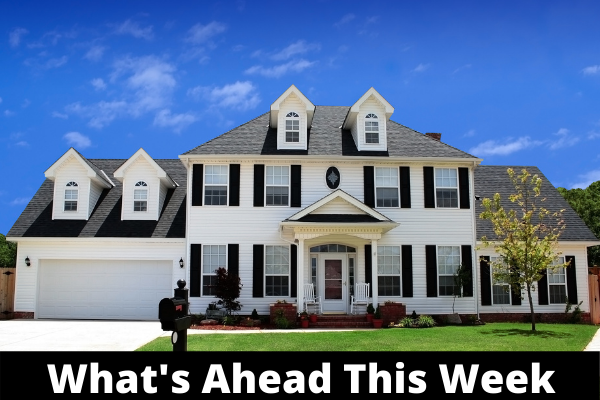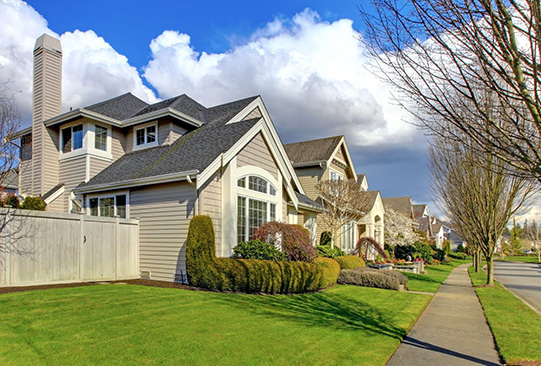What’s Ahead For Mortgage Rates This Week – January 31, 2022
 Last week’s economic reporting included readings from S&P Case Shiller Home Price Indices and the FHFA on home prices, data on new home sales, and the Federal Reserve’s statement on the federal interest rate range. The University of Michigan released its monthly survey on Consumer Sentiment and weekly readings on mortgage rates and jobless claims were also published.
Last week’s economic reporting included readings from S&P Case Shiller Home Price Indices and the FHFA on home prices, data on new home sales, and the Federal Reserve’s statement on the federal interest rate range. The University of Michigan released its monthly survey on Consumer Sentiment and weekly readings on mortgage rates and jobless claims were also published.
S&P Case-Shiller Home Price Indices: Home Price Growth Slows in November
Home prices rose at a seasonally-adjusted annual pace of 18.80 percent in November according to S&P Case-Shiller’s National Home Price Index. The 20-City Home Price Index, which is frequently used by real estate pros, reported that Phoenix, Arizona home prices rose by 32.20 percent year-over-year. Tampa, Florida home prices rose by 29 percent, and Miami, Florida home prices rose by 26.60 percent.
The Federal Housing Finance Agency, which tracks data on homes owned and financed by Fannie Mae and Freddie Mac, reported 17.50 percent year-over-year growth in home prices in November as compared to October’s reading of 17.40 percent.
New homes sold at an annual pace of 811,000 sales in December; analysts expected a reading of 757,000 sales. New homes sold at a pace of 725,000 sales year-over-year in November.
Fed Leaves Key Interest Rate Unchanged, Hints at Raising Rates in 2022
The Federal Open Market Committee of the Federal Reserve announced that it did not raise the key federal funds rate range of 0.00 to 0.25 percent, but indicated future rate increases would be used to control inflation. Combined impacts of rapidly rising home prices and mortgage rates presented challenges to first-time and moderate-income home buyers, but the median price of a single-family home fell to $377,700 in December.
Mortgage Rates, Jobless Claims Mixed
Freddie Mac reported little change in mortgage rates last week as the average rate for 30-year fixed-rate mortgages dropped by one basis point to 3.55 percent. The average rate for 15-year fixed-rate mortgages rose by one basis point to 2.80 percent. Rates for 5/1 adjustable rate mortgages averaged 2.70 percent and 10 basis points higher than in the previous week. Discount points averaged 0.70 percent for 30-year fixed-rate mortgages and 0.60 percent for 15-year fixed-rate mortgages. Discount points for 5/1 adjustable rate mortgages averaged 0.20 percent.
Initial jobless claims fell to 260,000 new claims filed as compared to the previous week’s reading of 290,000 first-time claims filed. Continuing jobless claims rose to 1.68 million claims filed from the prior week’s reading of 1.62 million ongoing claims filed
What’s Ahead
This week’s scheduled economic reporting includes readings on construction spending, job openings and quits, public and private sector jobs growth, and the national unemployment rate. Weekly reports on mortgage rates and jobless claims will also be published.

 S&P Case-Shiller Home Price Indices reported slower home price growth in November. Rising mortgage rates and high home prices sidelined first-time and moderate-income buyers and investors who fear buying at the peak of today’s housing markets only to face lower home values when home prices cool off.
S&P Case-Shiller Home Price Indices reported slower home price growth in November. Rising mortgage rates and high home prices sidelined first-time and moderate-income buyers and investors who fear buying at the peak of today’s housing markets only to face lower home values when home prices cool off. Buying a home isn’t cheap. But if you’re determined to become a homeowner, the FHA home loan program can help. This loan program, ideal for first-time buyers with low incomes, can help you to build your credit and make home ownership a reality.
Buying a home isn’t cheap. But if you’re determined to become a homeowner, the FHA home loan program can help. This loan program, ideal for first-time buyers with low incomes, can help you to build your credit and make home ownership a reality.